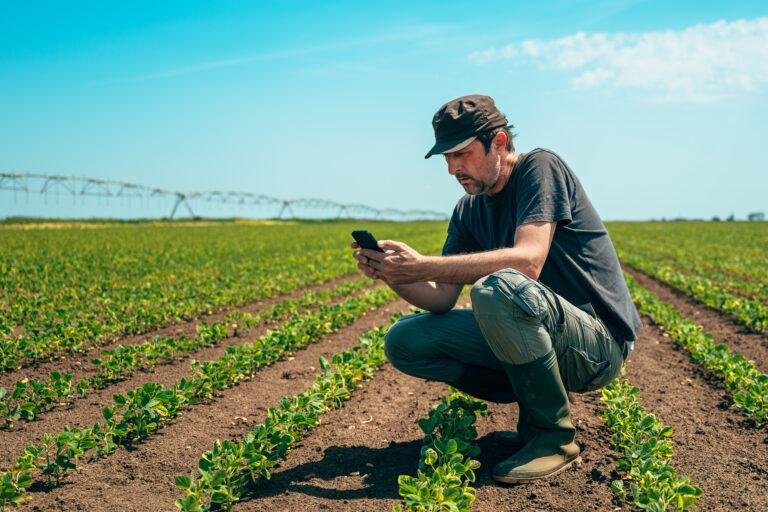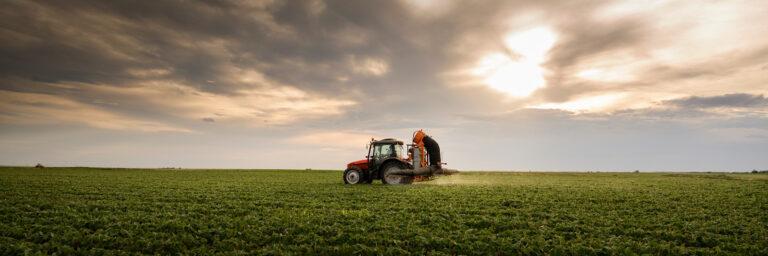
You can find the details of what the Whole Farm Plan encompasses on the Rural Payments website, explained section-by-section. In this blog, we’re going to briefly touch what it means when it comes to Carbon Audits (or assesments).
As this announcement from the Scottish Government has come in the middle of our user migration, you will notice some changes on the platforms and on this website, which are explained below.
The Whole Farm Plan was a recommendation from the Farmer Led Groups and will support farmers and crofters to take a holistic view of their farm or croft.
By establishing their current performance and activities, businesses will be able to better identify opportunities for improvement and work towards being more productive and profitable, better positioning them to contribute to meeting Scotland’s climate and nature targets.
From 2025, in order to receive Basic Payment Scheme (BPS) payment, every farmer and crofter in Scotland will have to demonstrate, by 15 May 2025, that they have started to review and baseline their current land and livestock management practices.
That means that they’ll have to obtain at least two of the audits and plans that meet the minimum standard required for the Whole Plan Farm.
The Whole Farm Plan was put in place so that farmers and crofters can:
By 15 May 2028 at the latest, every farmer and crofter in Scotland will have to complete all of the WFP audits and plans applicable to their business as a condition of receiving Scottish Government Agricultural support payments.
Practical advice on how to make the most of your plans and audits to improve your business practices can be found on the Farm Advisory Service website.
Farmers and crofters will be required to indicate what plans they have on their 2025 Single Application Form (SAF), but will not initially be required to submit details relating to their audits and plans.
In 2025, no penalties will be applied to BPS payments if you have at least two of the audits and plans that make up the Whole Farm Plan. Instead, a warning letter will be issued.
Keep checking the Rural Payments website for updates regarding the years beyond 2025. Frequently Asked Questions about the Whole Farm Plan can be found by clicking on the link.
If you've never done a carbon audit, now is the time to be prepared for when the time comes on 15th May 2025.
Carbon audit is one of the audits and plans that make up the 2025 Whole Farm Plan. It encompasses a five-year review of your farm.
When it comes to carbon audits, all claimants of the Scottish government agricultural support payments will be required to complete it by 2028. By 15th May 2025, at least two of the audits outlined on Rural Payments website must be done.
If your carbon plan was created or last updated on or after these dates:
you are not required to obtain a new, or update your existing carbon plan.
If you’ve never done a carbon audit, now is the time to be prepared for when the time comes on 15th May 2025.
A Carbon Audit (CA) will provide farmers and crofters with an estimated carbon footprint at a whole farm / croft and at individual enterprise level, regardless of the size of a farm or croft. It will also identify where the greatest emissions are being produced or are being, or can be sequestered.
High carbon emissions tend to be linked to high use of resources, and / or wastage, so reducing emissions can also reduce costs.
Before being able to reduce emissions, all farmers and crofters must first understand the source of these emissions.
A Carbon Audit identifies the main sources of greenhouse gas (GHG) emissions that farmers and crofters may otherwise be unaware of, and should be used to help inform decision-making opportunities for potential changes to livestock and land management practices.
A Carbon Audit, or assessment, identifies the main sources of greenhouse gas (GHG) emissions that farmers and crofters may otherwise be unaware of, and should be used to help inform decision-making opportunities for potential changes to livestock and land management practices.
To meet the requirements of the WFP, the carbon audit must:
It is recommended – but not mandatory, that:
It is currently not possible to sign up for the free version of the original Agrecalc calculator. The sign up has been stopped in order to enable our teams to migrate our current users to the new Agrecalc Cloud platform. The old platform is being gradually withdrawn soon, and we will inform our users about the steps taken via our website, or through our newsletter communications.
We have enabled the sign up for the free trial of the Agrecalc Cloud for individual farmers.
Registered users on version 1 will be migrated shortly, but can still use the Agrecalc free version for a period of time. Please remember that you will need your BRN for your report. We will update you and keep you informed of the changes as they progress.
As the Whole Farm Plan is currently an unfunded programme, using the free version means that you must input your own data from the farm / croft accounts, and other farm records. Agrecalc staff are unable to provide direct support for free users, as we don’t have the resources to provide this service. If you’re unsure how to do it, you can reach out to the Farm Advisory Service (FAS).
If this is your first carbon audit, we strongly recommend that you engage a consultant or an advisor who would be able to provide mitigation recommendations specific to your farm or croft.
The free version of Agrecalc is being gradually withdrawn, with the first step of stopping new signups completed, to enable our teams to conduct a migration of all users to the new, cloud-based platform. The next step will be discontinuing its use.
At the moment, we’re unsure whether the Free reports would be accepted in commercial situations, like with your processor or bank. We will keep you updated with new information as soon as it becomes available.
A single farm commercial licence (column ‘Pro’ on our Pricing page) gives you access to the software for the whole year, multiple farm reports, and a report validation by an experienced consultant. That’s a value pack for just £8.25 per month*. You can buy it by getting in touch with us via [email protected] .
If you intend to claim for the cost under the Preparing for Sustainable Farming scheme, then you MUST use a FBAASS-accredited advisor. Find one on LANTRA website.
You can also refer to the Frequently Asked Questions on the Rural Payments website .
*price paid annually and subject to change


After two years of operation as a Limited Company, Agrecalc became part of Scotland’s Rural College (SRUC) as of 1 April 2025.

Biochar is a carbon-rich material produced by pyrolysing biomass, which offers a variety of potential agronomic benefits. In this guest article, Black Bull Biochar discusses how these effects work together to bolster productivity, sustainability, and resilience in farming.